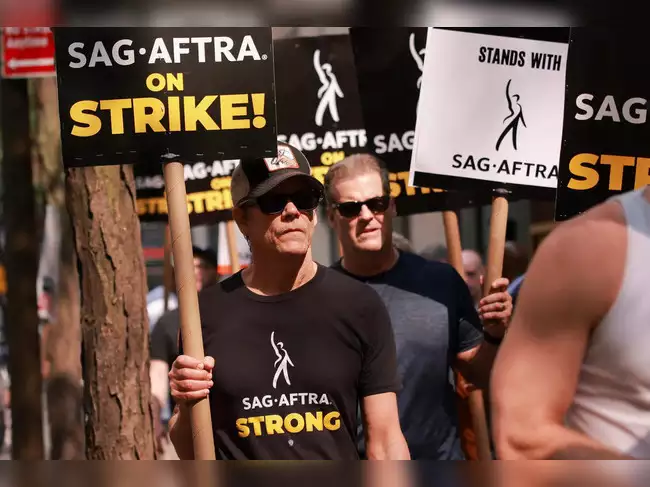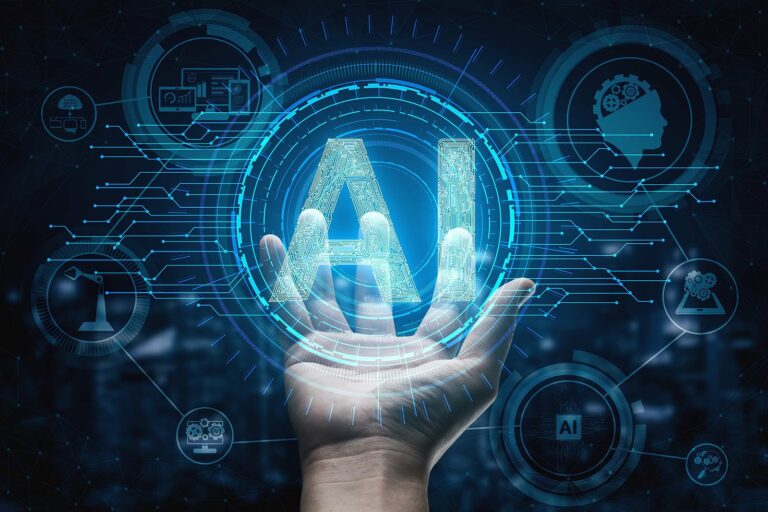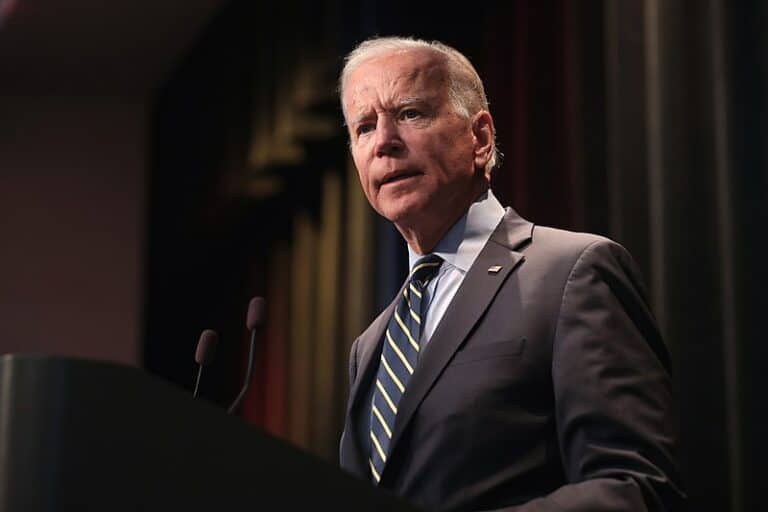
Marina Multhaup is a Senior Associate at Barnard, Iglitzin & Lavitt—a law firm in Seattle, Washington, that represents unions, and a former student member of the Labor and Employment Lab at Harvard Law.
Artificial intelligence has the capability to reshape the ways that we work. Experts predict that AI will increase wealth, raise the GDP, improve health care and education. Generative artificial intelligence (AI, or GAI) is also a potential existential threat to labor. That’s not hyperbole, that’s the dream and prediction of OpenAI founder Sam Altman, who explains that the promise of AI’s wealth-generating capability is premised on AI reducing labor costs to zero. That outcome is not inevitable, however, and if and how it happens will be shaped and influenced by humans—and in particular by unions.
Unions are no strangers to huge technological changes. To the contrary, unions have often negotiated, with varying effectiveness, about advances in technology and production: the automation of the assembly line, the Airbnb-ification of the hotel industry, the ride-share takeover of taxi drivers. AI represents the latest, and perhaps most transformative, technological development that will change work as we know it. And recently, the screen writers union, the Writers Guild, and the screen actors union, SAG-AFTRA, dealt with AI head-on in their contract negotiations. Their experience—what they won, what they didn’t, and how they fought for it—should be a guide to workers and unions in all industries as they grapple with the impact of AI.
The entertainment industry has been using different forms of AI for years. As AI has developed, writers and actors have become increasingly worried about AI’s incursion into their work. Writers worried that studios would use large language models to write scripts instead of employing humans to do so. Background actors have been getting replaced by AI-generated models for years. Both unions thus headed into negotiations earlier this year with the goal of securing guardrails for the use of AI. Fran Drescher, the President of the actors union, described AI protections as a “deal breaker,” and Duncan Crabtree-Evelyn, the Chief Negotiator for the actors union, explained that they “could not wait” until the next contract to discuss AI, as it could “undermine everything our members do and their existence in this industry.” The studios and streamers, who negotiate with the actors and writers’ union as the AMPTP, were initially unwilling to bargain over the issue at all. It wasn’t until after both memberships waged long and energized strikes that the studios agreed to include AI issues in the contracts. Both unions won what they describe as important and historic provisions about AI. So, what did they win?
The writers’ contract includes several important protections. First, the contract specifies that because AI is not human, it cannot be a “writer” for the purposes of the contract. Therefore nothing that AI produces can be considered “literary material,”—the “work” for which the contract establishes the basic terms, rights, and minimum compensation. Essentially, where the contract mandates the studio hire or pay a “writer,” it means a human. The deal gives the studios the freedom to use AI, but specifically preserves and includes writers in anything that AI comes up with. Studios can have AI generate an idea for a story, or write a screenplay, but they have to then give that idea or screenplay to a writer to turn into “material.” In those cases the studios have to a) tell the writer that the idea/screenplay was generated by AI, b) pay the writer as if the writer came up with the idea, and c) give the writer source credit. Similarly, the contract gives writers the ability to use AI, with the consent of the employer, to help them create, develop, or prepare “material.” Employers cannot require writers to use AI, except in non-writing situations like using an AI to detect copyright infringement.
The writers’ contract leaves studios with the ability to train AI models using existing writers’ materials. That topic continues to be controversial. The only safeguard is that the contract reserves writers’ individual abilities to bring suits against companies for using their materials to train AI, subject to existing copyright laws. Finally, the contract mandates that each employer meet with the union twice a year to “discuss and review” the company’s usage of AI.
The actors’ full tentative agreement has not yet been released, but we know its general provisions. Under the tentative agreement, studios must first gain informed consent from an actor to use their AI-generated “digital replica” in any covered production. In addition, the studio must pay that actor, or their estate, as if that actor was on set doing whatever their digital replica is made to do, according to a specific compensation standard depending on the type of media. Studios cannot simply put boilerplate language in an actor’s contract giving them use of the actor’s digital replica forever. For multi-picture deals, studios can gain consent for multiple uses of an actor’s digital replica, but they have to provide “specific descriptions” of how the replicas will be used. In some unsettling circumstances studios use “synthetic fakes” instead of digital replicas, which are basically AI-generated mish-mashes of different human parts to create human forms for scenes where lots of bodies are needed, like a stadium shot. In those situations, as Crabtree-Ireland described it, if a synthetic fake used Jennifer Aniston’s eyes, then Aniston would still need to give her informed consent and receive (some sort of) compensation.
There are plenty of gray areas regarding AI that these contracts left untouched. Some speculate that letting studios train AI using existing written materials will generate multiple “thorny issues.” The actors’ contract appears to allow certain exceptions to the consent and compensation provision, such as when an actor’s digital replica is used for “comment, criticism, scholarship, satire or parody.” Indeed, neither contract bans AI. Instead, the actors and writers unions have created a role for themselves in AI’s development and future deployment. This approach has multiple benefits for workers and labor. Fighting hard now to establish a role for unions in the administration of AI means that unions will have a role going forward, as AI develops and ushers in unforeseen complications. The contracts also benefit AI and the studios’ continuing ability to experiment with AI technology. When thinking about the grueling and sometimes harmful conditions that child actors report, for example, it isn’t hard to imagine how AI could change things for the better.
No one knows how the advancement of AI will change work or the role of labor. If we are indeed on a slow path to the elimination of labor costs, then we need to think about how the wealth that AI generates will be distributed. The writers’ and actors’ contracts begin to do that and it’s exciting to see unions embracing the future fiercely.










Daily News & Commentary
Start your day with our roundup of the latest labor developments. See all
February 1
The moratorium blocking the Trump Administration from implementing Reductions in Force (RIFs) against federal workers expires, and workers throughout the country protest to defund ICE.
January 30
Multiple unions endorse a national general strike, and tech companies spend millions on ad campaigns for data centers.
January 29
Texas pauses H-1B hiring; NLRB General Counsel announces new procedures and priorities; Fourth Circuit rejects a teacher's challenge to pronoun policies.
January 28
Over 15,000 New York City nurses continue to strike with support from Mayor Mamdani; a judge grants a preliminary injunction that prevents DHS from ending family reunification parole programs for thousands of family members of U.S. citizens and green-card holders; and decisions in SDNY address whether employees may receive accommodations for telework due to potential exposure to COVID-19 when essential functions cannot be completed at home.
January 27
NYC's new delivery-app tipping law takes effect; 31,000 Kaiser Permanente nurses and healthcare workers go on strike; the NJ Appellate Division revives Atlantic City casino workers’ lawsuit challenging the state’s casino smoking exemption.
January 26
Unions mourn Alex Pretti, EEOC concentrates power, courts decide reach of EFAA.